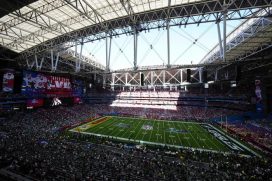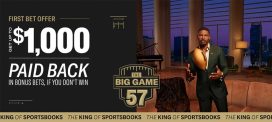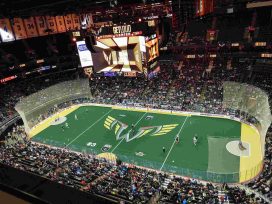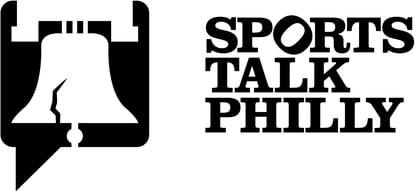During the Flyers' series of press conferences at the end of the 2014-15 season, Flyers right winger Jakub Voracek opened a can of worms when he stated that he strongly felt the team missed Kimmo Timonen from a leadership standpoint in the dressing room and that it created a void that was not filled this season.
Much of the day was spent with the media asking players and since-fired Flyers coach Craig Berube questions about leadership in the room. In particular, questions were raised how much a perceived dressing room leadership void may had to do with the team's dismal road record and the shocking disparity between the Flyers strong record against playoff-position teams and miserable record against fellow non-playoff teams.
In the weeks preceding general manager Ron Hextall's hiring of Dave Hakstol as well as in the sit-down interview he did with Jay Greenberg for the Flyers' website, Hextall himself opined that the team needed a little stronger player-to-player leadership. Hextall said that he feels leadership has to come from many different sources and not just the players who wear letters on their uniforms or are part of the slightly wider designated "leadership group" on the club.
At his own end-of-season press conference session, Flyers goaltender Steve Mason said that he would love the opportunity next season to be invited into being part of the leadership group.
When asked about the possibility, Berube quickly dismissed it. The former coach said in his session that he feels goalies play too solitary of a position on the ice — and have too many other things to worry about because they play such a difficult position — to function as team leaders.
Former goaltender Hextall, who was very much recognized as a respected team leader during his playing days, walked a tightrope down the middle when I asked him to weigh in on goaltenders' proper role in team leadership.
On the one hand, Hextall said that he knows of no successful situations where goaltenders have been part of the "formal" leadership group in an NHL team and said it has never been the case with the Flyers. However, he also said that part of the responsibility of being a team's go-to goalie is to show leadership traits by example.
Hextall said that he feels any player who is himself performing well and displaying a work ethic that teammates should follow has earned a right to speak up. He includes the starting goaltender in that equation. Specific to the current starting goaltender, Hextall said he felt Mason was one of the Flyers' players — along with Voracek and Wayne Simmonds — who have taken big strides in the leadership department over the last year.
Hextall also made a clear statement that he feels Mason is on the right track to being the same goaltender under any set of conditions. Over the course of the last couple seasons, Hextall said, Mason earned the right to speak out when he sees fit.
I asked a former NHL goaltender who spent over a decade in the league to weigh in on the topic of goalies' roles in team leadership. He felt that it was important for starting goalies to step into leadership roles on their teams.
"Goalies are leaders by nature," he said. "They are the most important piece on the team. Mason is and should be a leader on the team. He is a leader whether he thinks he is or not. That means he has to play hurt and sick sometimes because that's what leaders do. [Ray] Emery is not a leader, because he's not the number one goalie."
Berube never said so directly, but it was not hard to read between the lines and see he did not feel Mason was a genuine leader yet. He frequently pointed to Mason's road record this season as an indication of room for improvement by the goaltender as well as the rest of the team.
Even after his arrival in Philadelphia, where he has posted a combined 2.36 GAA and .923 save percentage in two-plus seasons, there have been suggestions by hockey people not affiliated with the Flyers that Mason does not do as well when he is taken out of his comfort zone. The goaltender likes everything from the arena lighting to his pads to be just so. He puts a lot of emphasis on his practice routine, which is much more likely to get disrupted on road trips than at home.
To this end, it should be noted that Mason seemed to handle himself just fine in games after the late-season departure of goaltending coach Jeff Reese, which certainly disrupted established routines. He did not seem mentally fragile at all, and the fact that he's went through so much adversity after his rookie season in Columbus ultimately seemed to make him strong enough to handle just about anything.
Even with all the controversy that got stirred up this season about the handling of Mason's injuries, the goalie himself seemed to roll with the punches and continued to play well when he was in the lineup.
Mason made clear in his own media availability last Monday that he had no interest in publicly wade into the issue of his injuries this season. He said he was able to play if needed and that was the end of it. Basically, this what he needed to say to prevent further questions on the topic being directed at him. For Hextall's part, the GM said the player self-reported that he was able to dress — or play if called upon — in the two games he performed relief duties immediately upon his return from the injured reserve list.
When the topic turned to Berube publicly criticizing Mason late in the season for what the coach felt was a stoppable game-winning goal in Vancouver and then pulling him early in Calgary after a similar goal was followed by a heavily screened (by a teammate) tally he never saw, Hextall stated that he had no issue with it and that coaches may push a variety of different motivational buttons during the season. Hextall said that coaches have to be allowed to coach, that goalies should be no more or less immune to criticism or benching and that all players need to be mentally tough enough to respond properly.
Again, Mason actually showed he developed thick skin in terms of not letting criticism wound him and letting his subsequent play do the talking. In many ways, that particular controversy was much ado about nothing.
Come next season, the Flyers will have Hakstol behind the bench and probably a few changes among the assistant coaches including the hiring of a new goaltending coach. Regardless of whom the Flyers hire as the next goalie coach, Mason will need to have another strong season — but also a healthier one — for the team to return to the playoffs.
As such a vital piece of the Flyers' puzzle, Mason will also be a team leader both on the ice and in the dressing room. He might not be formally designated with such a title, but as someone who usually holds the team competitive in games, he has earned the right to to be candid about how the team as a whole is playing as well as critiquing himself.







